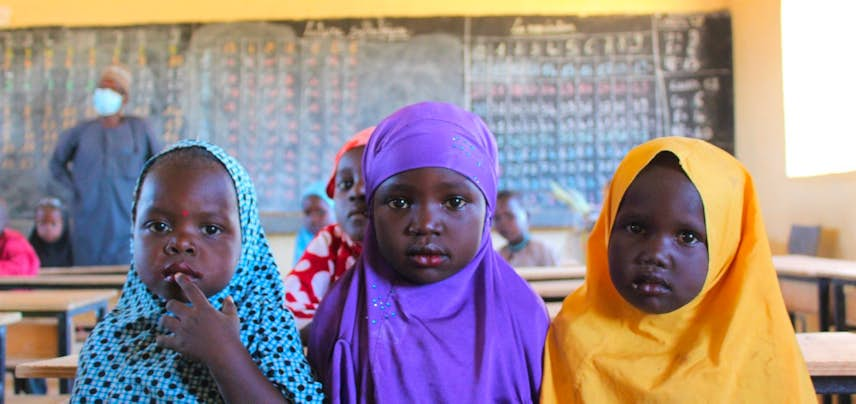Gender
With this in mind, Luxembourg Development Cooperation continues to be firmly committed to combating all forms of persistent discrimination and inequalities. These elements are also part of Luxembourg’s priorities within the framework of its mandate at the United Nations Human Rights Council for the 2022-2024 period.
Especially in fragile and conflict situations, women and girls continue to suffer disproportionately from political, social and economic exclusion. In order to overcome the multiple inequalities that women and girls still face, the Ministry of Foreign and European Affairs is maintaining its commitment to addressing the systemic reasons behind these obstacles. In particular, in these difficult times marked by an unprecedented multi-dimensional pandemic, it is crucial that women’s rights, including their sexual and reproductive health rights, be protected in a sustainable manner. One way to ensure this is to provide access to universal, non-discriminatory health coverage, with a particular focus on women and girls.
The coherent implementation of the gender dimension lies at the heart of Luxembourg Development Cooperation and is one of the strategies for achieving sustainable development for all.
Instead of asking why gender is a factor in the fight against poverty in our partner countries, Luxembourg Development Cooperation focuses on how this dimension could be systematically integrated into development policy. The aim is to translate this dimension into concrete measures, both in our policy and at institutional and programme level with our various partners.
Following the launch of the new gender cooperation strategy in 2021, which includes a transformative approach to gender equality in all portfolios, the next step is to develop an internal action plan to ensure the implementation of the theoretical guidelines. In order to support the various operators in implementing the new cross-cutting strategy and thus to provide an answer as to how to do so, Luxembourg Development Cooperation is currently developing concrete tools.
Within the framework of the “Generation Equality Forum” organised by France and Mexico in 2021, Luxembourg made concrete commitments for the action coalition entitled “Bodily autonomy and sexual and reproductive health and rights,” to accelerate progress on gender equality, at both the national and international level. Luxembourg is also a catalyst member of the Compact on Women, Peace and Security and Humanitarian Action.
In sub-Saharan Africa, Luxembourg Development Cooperation has continued to support access to education and health rights, as well as the empowerment of women and girls, through its contribution to the Education Plus initiative. This initiative’s goal is to reduce the rate of HIV infection among girls by creating a safe learning environment that allows them to complete secondary school.
NGOs continue to actively implement the gender strategy: following the finalisation of the Charter against sexual harassment, exploitation and abuse, two online training courses were organised on combating gender-based and sexual violence at work in October and November 2021. On the basis of these training courses, a guide is to be developed to facilitate its implementation.
In the context of the development of the new five-year programme in Laos, different thematic guidelines have been developed in collaboration with the local government in order to set out the details, for example, of the theme of human rights and gender in the specific context of Laos. This provides a robust reference framework for the implementation of the gender dimension throughout the new five-year programme in Laos.
In general, Luxembourg is always ready to adopt a partnership approach with the integration of all partners and a multi-stakeholder partnership approach. The objective is to develop programmes focused on promoting human rights and gender equality and combating all forms of sexual and gender-based violence, including female genital mutilation.
